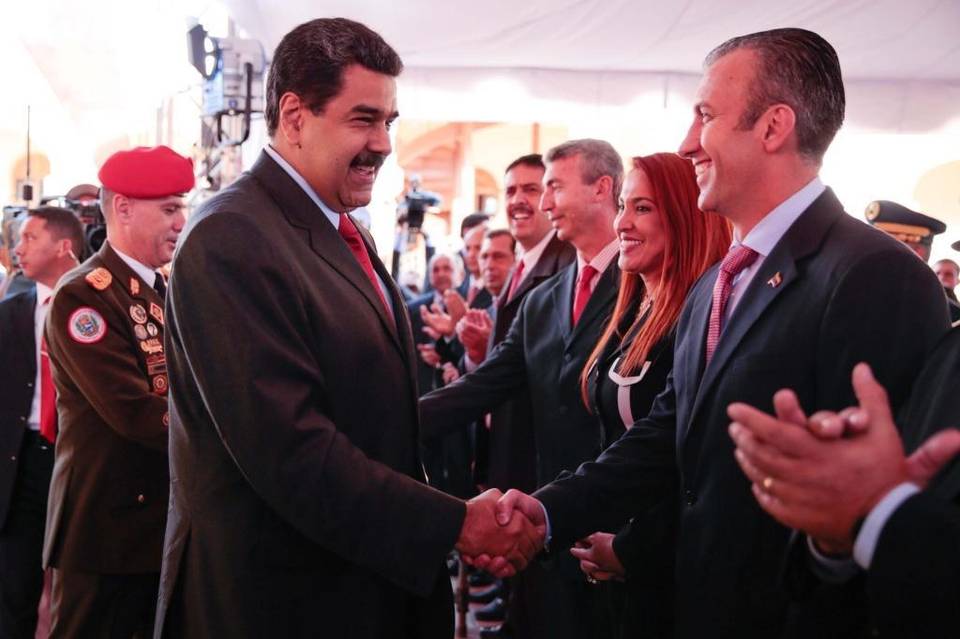Maduro names controversial vice president — and potential successor


Venezuelan President Nicolás Maduro on Wednesday appointed Tareck El Aissami, the controversial former minister of interior and the governor of Aragua state, as his new vice president.
The announcement is significant: If Maduro is ousted in a recall that many are demanding, El Aissami, 43, will finish Maduro’s term through 2019.
In a nationally televised address announcing several appointments, including El Aissami’s, Maduro said the changes are a “necessary renewal” of his Cabinet.
Among them: Ramón Lobo was named the head of the ministry of economy and finance, and Nelson Martínez was appointed minister of petroleum and mines. The outgoing petroleum minister, Eulogio del Pino, will remain as the head of the state-run oil company, PDVSA.
The Cabinet shuffle will put renewed scrutiny on El Aissami, who is seen as a ruling-party hardliner and one of the younger stars of the administration. Born in Mérida state, El Aissami studied law and criminology before being elected to the National Assembly in 2005. He was vice minister of citizen security from 2007 to 2008, and late President Hugo Chávez appointed him minister of interior from 2008 to 2011, at a time when crime in Venezuela was exploding.
Last year, citing anonymous U.S. officials, The Wall Street Journal reported that El Aissami was one of several high-ranking Venezuelan officials under investigation for drug trafficking.
Maduro said outgoing Vice President Aristobulo Isturiz would be assigned new responsibilities at a later date.
Sweeping Cabinet changes aren’t uncommon in Venezuela, but the latest shift comes at a critical time in the administration.
Maduro, who has been in power since 2013, is struggling to keep the economy afloat amid hyperinflation and rolling shortages of food, medicine, and other basic goods. Political turmoil and rampant violence have also hammered his approval ratings.
The opposition had been trying to organize a recall in 2016, when Maduro’s ouster would have triggered new elections, but the courts and the National Electoral Council managed to stall the move.





